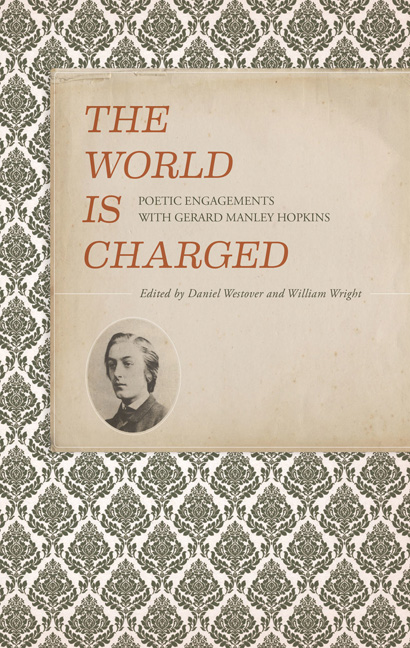Foreword
Summary
“IT STRIKES LIKE LIGHTNINGS TO HEAR HIM SING”: A FIRST ENCOUNTER WITH GERARD MANLEY HOPKINS AND THE GENESIS OF THIS ANTHOLOGY
Stephen Gardner, my undergraduate poetry mentor, introduced me to Gerard Manley Hopkins by way of a British poetry course offered at the University of South Carolina Aiken in 1998. I was nineteen, idealistic, poetry-crazed, and heartbroken: my parents had just divorced, and I was not taking it well. I associate that time with an image as much Eliotic as Hopkinsian: a great cathedral stained-glass window pulled from its sashes to explode into unassimilable, gemlike shards—a barbarous beauty, but beauty nonetheless. Stephen was not religious, but he always mentioned Hopkins in his classes, even during an American survey course in which he argued that Hopkins outpaced Whitman and Dickinson in terms of raw power and genius—a provocative claim, but one he supported for the rest of the class with fervent certainty.
Stephen delighted in reading Hopkins aloud, and I distinctly recall the way his voice thrummed through the air of that tiny classroom as he read “God's Grandeur.” In my mind, Stephen remains unmatched for his ability to read poetry with a convincing dynamism, and on that day, after the brown brink had sprung in the east and the Holy Ghost had wrapped its protective, luminous wings around the imminent hatching of Earth's nature, Stephen shivered and said, “It gives me chills every single time.”
The poem struck me with a nearly hallucinogenic force. Not only did I experience a physiological reaction, one in which the electricity of the poem seemed to permeate me deeply and rush me with nature's “dearest freshness,” but the poem's stark and unharnessed lyrical beauty also provoked an emotional response too difficult to be contained in that stifling room: I rose, exited the building, walked to my car, got in, and wept. “God's Grandeur” was more than anodyne to my sadness; it struck me as a general hope for the understanding and acknowledgment of beauty in the world, no matter the “blear,” “smear,” and “toil” of humanity's problems, personal or otherwise.
- Type
- Chapter
- Information
- The World is ChargedPoetic Engagements with Gerard Manley Hopkins, pp. xiv - xvPublisher: Liverpool University PressPrint publication year: 2016



